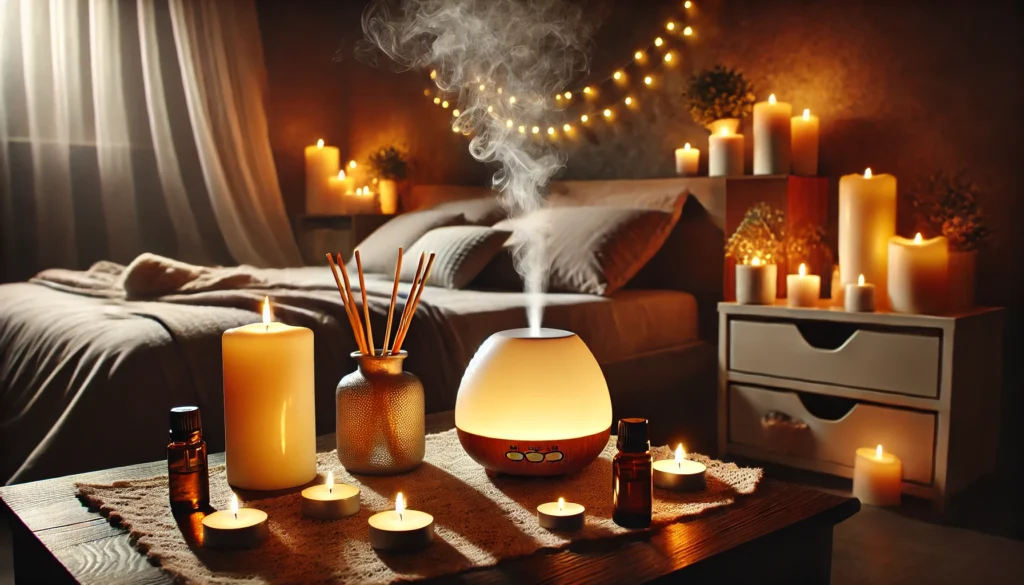Stress and sleep are inextricably linked. The interplay between these two factors can deeply impact both mental and physical health. Stress triggers a cascade of physiological responses in the body, including the release of cortisol, the primary stress hormone. Elevated cortisol levels can disrupt the sleep-wake cycle, making it difficult to fall asleep or stay asleep. Chronic stress can lead to long-term sleep disturbances, which in turn, exacerbate stress levels, creating a vicious cycle.
You may also like: Effective Stress Management Techniques for Daily Life
The Science Behind Stress and Sleep
Understanding how stress affects the body’s biological clock is essential. The hypothalamic-pituitary-adrenal (HPA) axis, which regulates stress responses, plays a significant role in sleep regulation. When stressed, the HPA axis is activated, leading to increased cortisol production. This hormonal imbalance can delay the onset of sleep, reduce overall sleep time, and affect sleep quality.
Psychological Impacts of Stress on Sleep
The psychological effects of stress can also be profound. Anxiety and racing thoughts often accompany stress, making it challenging to unwind at night. The mind becomes an active battleground, where worries and concerns overshadow the peace needed for restful sleep. Cognitive Behavioral Therapy (CBT) techniques can be useful in managing these thoughts, promoting a healthier mental state conducive to sleep.
Long-term Consequences of Sleep Deprivation
Chronic sleep deprivation can have serious implications for overall health. It can lead to cognitive impairments, increased risk of chronic diseases, and weakened immune function. The stress-sleep cycle is a double-edged sword; poor sleep can heighten stress sensitivity, while stress can further impede sleep, creating a self-perpetuating problem.
Historical Context: The Evolution of Sleep and Stress
Historically, our ancestors’ stressors were immediate and physical—such as threats from predators—which required quick responses. These acute stress responses were vital for survival, enabling the fight-or-flight mechanism. Modern stressors, however, tend to be psychological and chronic, like work pressure or financial concerns. These persistent stressors keep the body’s stress response system activated longer than intended, significantly impacting sleep patterns.
Modern Lifestyle and Its Impact
Today’s sedentary lifestyles and constant connectivity contribute to stress. The digital age has blurred the lines between work and personal life, leading to a constant state of alertness. This perpetual connectivity can exacerbate stress and disturb natural sleep rhythms. Recognizing and addressing these modern-day challenges is crucial for achieving better sleep.
Evolutionary Adaptations and Mismatches
Our bodies are still wired to respond to the primal threats faced by early humans. The disconnect between our evolutionary adaptations and modern stressors creates a mismatch, often making it difficult to manage stress effectively. Understanding this mismatch can help in developing strategies that better align with our biological needs.
Stress Management Strategies
To break the cycle of stress-induced sleep disturbances, implementing stress management strategies is essential. Developing a personalized plan to manage stress can lead to significant improvements in sleep quality. Here are some evidence-based approaches:
Mindfulness Meditation
Mindfulness meditation involves focusing on the present moment without judgment. This practice encourages individuals to observe their thoughts and feelings without becoming entangled in them. Research has shown that regular mindfulness practice can reduce cortisol levels, enhance relaxation, and improve sleep quality. By cultivating awareness and acceptance, mindfulness helps individuals manage stress more effectively, promoting better sleep.
Techniques for Practicing Mindfulness
There are various ways to incorporate mindfulness into daily life. Techniques such as body scans, mindful breathing, and mindful observation can be practiced anywhere, anytime. These exercises enhance self-awareness and help in recognizing stress triggers, allowing for more effective management.
Benefits Beyond Stress Reduction
Mindfulness extends its benefits beyond mere stress reduction. It enhances emotional regulation, improves focus, and boosts overall well-being. Regular practice can lead to a more balanced lifestyle, where stress is less likely to disrupt sleep.
Incorporating Mindfulness into Daily Routine
Making mindfulness a part of daily routine doesn’t require significant time investment. Short, consistent sessions can be more effective than sporadic longer ones. Apps and guided sessions can assist beginners in establishing a regular practice, gradually integrating mindfulness into everyday life.
Progressive Muscle Relaxation
Progressive Muscle Relaxation (PMR) is a technique that involves tensing and then relaxing each muscle group in the body. This method has been found to reduce stress and anxiety, leading to improved sleep. Practicing PMR before bedtime can help release physical tension accumulated during the day, preparing the body for restful sleep.
Step-by-Step Guide to PMR
PMR can be easily integrated into bedtime routines. Start by finding a comfortable position and then systematically tense and relax each muscle group, starting from the toes and working up to the head. This gradual process helps in releasing tension and promoting relaxation.

Psychological Benefits of PMR
Beyond physical relaxation, PMR provides psychological benefits by fostering a mind-body connection. This connection helps in recognizing areas of tension, allowing for focused stress relief efforts. It also encourages a meditative state, conducive to sleep.
Combining PMR with Other Relaxation Techniques
Combining PMR with deep breathing or mindfulness can enhance its effectiveness. This synergy of techniques can amplify relaxation, making it easier to drift into a peaceful sleep. Experimenting with different combinations can help in finding what works best for individual needs.
Exercise Regularly
Physical activity is a powerful stress reliever. Regular exercise decreases cortisol levels and increases the production of endorphins, chemicals in the brain that act as natural painkillers and mood elevators. Aim for at least 30 minutes of moderate exercise most days of the week, but avoid vigorous workouts close to bedtime as they may interfere with sleep.
Choosing the Right Type of Exercise
Different types of exercise have varied effects on stress and sleep. Aerobic exercises, such as running or cycling, are excellent for releasing pent-up energy. Yoga and tai chi offer a more meditative approach, combining physical movement with mindfulness. Finding the right balance is key to maximizing benefits.
Timing Your Workouts for Optimal Sleep
The timing of exercise can influence its impact on sleep. Morning workouts can energize the body and set a positive tone for the day. Evening exercises should be lighter to avoid overstimulation before bed. Listening to one’s body and adjusting accordingly is essential for optimizing sleep.
Social and Psychological Benefits of Exercise
Exercise offers social benefits, such as meeting new people in group classes, which can alleviate feelings of isolation. The psychological boost from achieving fitness goals enhances self-esteem and reduces anxiety. This holistic approach to stress management can significantly improve sleep quality.
Natural Ways to Reduce Anxiety
While medication can be effective for some, many individuals seek natural ways to alleviate anxiety. Exploring these options can offer gentle yet effective means to manage stress and improve sleep. Here are a few methods supported by science:
Herbal Supplements
Certain herbal supplements have been shown to reduce anxiety and improve sleep. Valerian root, chamomile, and passionflower are popular choices. These natural remedies can promote relaxation and help induce sleep without the side effects associated with prescription medications. However, it’s important to consult with a healthcare professional before starting any supplement regimen.
Understanding Herbal Efficacy
The efficacy of herbal supplements varies among individuals. Understanding the active compounds and their effects on the body can help in choosing the right supplement. Researching and consulting with professionals ensures safe and effective use.
Integrating Supplements with Lifestyle Changes
Herbal supplements should complement, not replace, healthy lifestyle practices. Combining them with stress management techniques enhances their effectiveness. This integrated approach fosters a holistic path to reducing anxiety and improving sleep.
Potential Side Effects and Precautions
Even natural remedies can have side effects or interact with medications. It’s crucial to be aware of potential risks and start with small doses. Regular monitoring and professional guidance can prevent adverse effects and ensure optimal results.
Aromatherapy
Aromatherapy uses essential oils to enhance physical and emotional well-being. Lavender oil, in particular, has been extensively studied for its calming effects. Diffusing lavender in the bedroom or applying it topically can reduce anxiety levels and improve sleep quality.
Selecting the Right Essential Oils
Not all essential oils are created equal. Understanding the properties of different oils can help in selecting the most effective ones for stress relief. Experimenting with blends can offer personalized aromatherapy experiences.
Methods of Application
Aromatherapy can be applied in various ways, such as through diffusers, topical application, or inhalation. Each method has unique benefits and choosing the right one depends on personal preferences and desired outcomes. Creating a calming atmosphere enhances the effectiveness of aromatherapy.
Incorporating Aromatherapy into Daily Life
Integrating aromatherapy into daily routines can significantly impact stress levels. Simple practices, like using calming scents during meditation or before bedtime, can create a consistent relaxation ritual. This routine can signal the body to unwind and prepare for rest.
Deep Breathing Exercises
Deep breathing exercises activate the body’s relaxation response, reducing stress and promoting calmness. Techniques such as diaphragmatic breathing or the 4-7-8 method can be particularly effective. Practice these exercises regularly to manage anxiety and support better sleep.

Benefits of Controlled Breathing
Controlled breathing helps in regulating the autonomic nervous system. This regulation reduces heart rate and blood pressure, fostering a state of relaxation. The simplicity of these exercises makes them accessible tools for stress relief.
Techniques for Effective Breathing
Different techniques cater to varying needs. Diaphragmatic breathing focuses on deep, abdominal breaths, while the 4-7-8 method involves specific timing to enhance relaxation. Practicing these techniques can improve lung capacity and overall respiratory health.
Creating a Breathing Practice Routine
Establishing a routine for breathing exercises can amplify their benefits. Consistency is key, and setting aside a few minutes each day can lead to significant improvements in stress management and sleep quality. Guided sessions or apps can assist in maintaining a regular practice.
Techniques to Improve Sleep Amidst Stress
Even with stress management strategies in place, some individuals may still struggle with sleep. Implementing these techniques can help improve sleep quality despite stress. Tailoring these methods to individual needs can create a personalized approach to achieving restful sleep.
Establish a Consistent Sleep Schedule
Going to bed and waking up at the same time each day helps regulate the body’s internal clock, promoting better sleep. Consistency reinforces the sleep-wake cycle, making it easier to fall asleep and wake up refreshed.
Importance of Sleep Hygiene
Sleep hygiene encompasses practices that support consistent sleep patterns. This includes maintaining a regular sleep schedule, even on weekends, to reinforce the body’s natural rhythm. Good sleep hygiene is foundational to improved sleep quality.
Overcoming Challenges to Consistency
Life’s unpredictability can make maintaining a sleep schedule challenging. Strategies such as setting reminders or creating a bedtime routine can aid in overcoming these challenges. Adapting to changes while preserving core habits ensures long-term success.
Monitoring and Adjusting Sleep Patterns
Using sleep diaries or apps can help in tracking sleep patterns. This monitoring provides insights into habits and triggers that affect sleep. Adjusting based on these insights can lead to more personalized and effective sleep strategies.
Create a Relaxing Bedtime Routine
A calming pre-sleep routine can signal the body that it’s time to wind down. Activities such as reading, taking a warm bath, or practicing gentle yoga can prepare the mind and body for sleep. Avoid screens and stimulating activities at least an hour before bedtime, as the blue light emitted by electronic devices can interfere with melatonin production, a hormone crucial for sleep.
Designing a Personalized Routine
Personalization is key to an effective bedtime routine. Experimenting with different activities can help in finding what truly relaxes the body and mind. This routine should be enjoyable, making it easier to adhere to.
Importance of Disconnecting from Technology
Reducing screen time before bed is vital for optimal sleep. The blue light from devices can suppress melatonin, making it harder to fall asleep. Creating a tech-free zone in the bedroom promotes a more restful environment.
Incorporating Calming Practices
Incorporating practices like journaling or listening to soothing music can enhance relaxation. These activities allow for emotional release and mental decluttering, paving the way for a peaceful night’s sleep. Consistent practice reinforces these benefits.
Optimize Your Sleep Environment
A comfortable sleep environment is essential for quality sleep. Keep the bedroom cool, dark, and quiet. Consider using blackout curtains, white noise machines, or earplugs if necessary. Investing in a comfortable mattress and pillows can also make a significant difference in sleep quality.
Importance of a Comfortable Sleep Setting
The physical environment plays a crucial role in sleep quality. Ensuring a comfortable mattress and supportive pillows is foundational to a good night’s rest. Regularly evaluating and upgrading bedding as needed can prevent sleep disruptions.
Creating a Sleep-Inducing Atmosphere
Atmosphere matters when it comes to sleep. Using calming colors, scents, and lighting can transform the bedroom into a sleep sanctuary. Simple changes, like dimming lights or using essential oils, can have a profound impact.
Addressing Noise and Light Pollution
External disturbances, such as noise and light, can affect sleep. Solutions like earplugs, eye masks, or sound machines can mitigate these disruptions. Creating a tranquil environment supports deeper, more restorative sleep.
Future Implications: The Role of Technology in Sleep Management
As technology advances, new tools and devices aimed at improving sleep are emerging. Wearable technology, such as smartwatches and fitness trackers, can monitor sleep patterns and provide insights into sleep quality. Additionally, apps offering guided meditation, relaxation exercises, and sleep tracking features are becoming increasingly popular. While these technologies can be beneficial, it’s essential to use them mindfully and not let them become a source of stress themselves.
Evolution of Sleep Technology
The evolution of sleep technology offers new opportunities for improving sleep quality. Innovations in wearable devices and smart home systems provide data-driven insights into sleep patterns. These technologies empower users to make informed decisions about their sleep health.
Benefits and Limitations of Sleep Apps
Sleep apps offer convenience and accessibility, providing guided meditations and relaxation techniques at the user’s fingertips. However, reliance on technology can sometimes lead to over-monitoring and anxiety. Balancing tech use with traditional methods ensures holistic sleep management.
Future Trends in Sleep Technology
Emerging trends, such as AI-driven sleep analysis and personalized sleep solutions, hold promise for the future. These advancements could revolutionize how sleep disorders are diagnosed and treated. Staying informed about these trends can help in leveraging technology for better sleep.
Conclusion
Stress is an inevitable part of life, but its impact on sleep can be mitigated through effective stress management strategies and lifestyle modifications. By understanding the relationship between stress and sleep, and implementing the tips and techniques outlined in this article, individuals can improve their sleep quality and overall well-being. Remember, it’s crucial to tailor these strategies to individual needs and consult with healthcare professionals when necessary. With the right approach, achieving restful, restorative sleep in the face of stress is attainable.
Personalizing Your Sleep Strategy
Personalization is key to effective stress and sleep management. Each individual has unique needs and preferences, and what works for one may not work for another. Experimenting with different strategies and adjusting them based on personal experiences can lead to the most effective solutions.
Long-term Commitment to Sleep Health
Improving sleep quality requires a long-term commitment. Consistency and patience are essential as changes may take time to manifest. Staying dedicated to healthy sleep practices ensures lasting benefits and a healthier lifestyle.

Seeking Professional Guidance
When self-help strategies aren’t enough, seeking professional guidance is crucial. Sleep specialists and mental health professionals can provide personalized advice and treatment options. Don’t hesitate to reach out for help to achieve the best possible sleep health.
Further Reading:
Sleepless Nights? Try Stress Relief Techniques
Stress relievers: Tips to tame stress
Important Note: The information contained in this article is for general informational purposes only, and should not be construed as health or medical advice, nor is it intended to diagnose, prevent, treat, or cure any disease or health condition. Before embarking on any diet, fitness regimen, or program of nutritional supplementation, it is advisable to consult your healthcare professional in order to determine its safety and probable efficacy in terms of your individual state of health.
Regarding Nutritional Supplements Or Other Non-Prescription Health Products: If any nutritional supplements or other non-prescription health products are mentioned in the foregoing article, any claims or statements made about them have not been evaluated by the U.S. Food and Drug Administration, and such nutritional supplements or other health products are not intended to diagnose, treat, cure, or prevent any disease.


